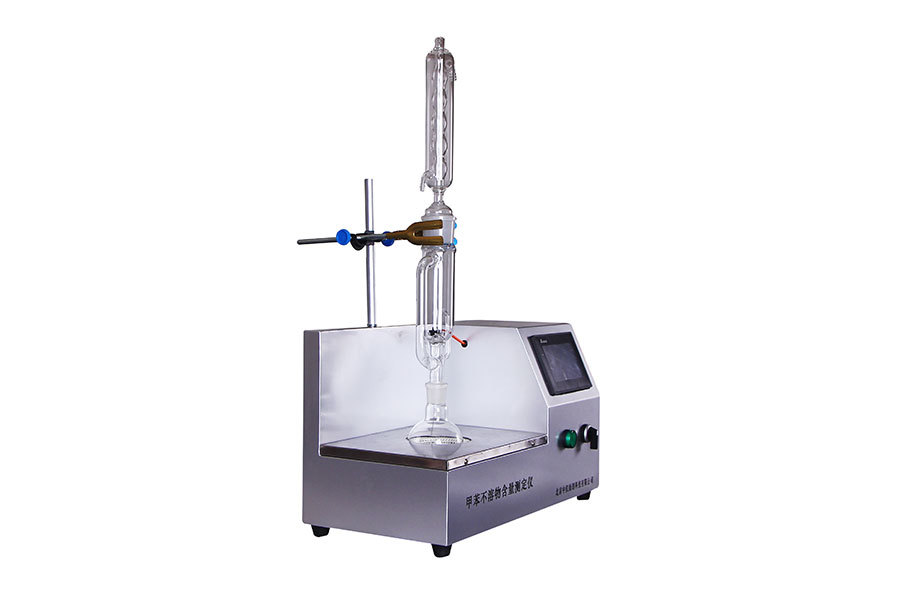Unlocking Precision: The Essential Role of Fully Automatic Asphalt Softening Point Tests
Jun 15,2025

Unlocking Precision: The Essential Role of Fully Automatic Asphalt Softening Point Tests
In the world of civil engineering and construction, the quality of materials plays a crucial role in determining the longevity and durability of infrastructure. This is particularly true for asphalt, which is widely used in road construction and maintenance. Among the various tests employed to evaluate the quality of asphalt, the **asphalt softening point test** stands out as a critical assessment. As technology continues to evolve, the introduction of **fully automatic asphalt softening point testing instruments** has revolutionized how these tests are conducted, ensuring accuracy and efficiency in results. This article delves into the importance of these advanced tools, their methodology, and the implications for the construction industry.
Table of Contents
- Understanding Asphalt Softening Point
- The Importance of Softening Point Testing
- What are Fully Automatic Testing Instruments?
- Benefits of Fully Automatic Asphalt Softening Point Tests
- Step-by-Step Process of Fully Automatic Softening Point Tests
- Technological Advancements in Asphalt Testing
- Case Studies and Real-World Applications
- The Future of Asphalt Testing
- Frequently Asked Questions
Understanding Asphalt Softening Point
The **softening point** of asphalt refers to the temperature at which the asphalt transitions from a solid state to a more fluid state. This characteristic is critical as it affects the material's performance under varying environmental conditions. Specifically, the softening point indicates the temperature range in which asphalt remains workable, making it essential for ensuring proper application and longevity of pavements.
The Significance of Softening Point in Asphalt Performance
The softening point has a direct correlation with the **viscosity** and **elasticity** of asphalt. These properties are crucial for the material's ability to withstand heavy traffic loads and temperature fluctuations without cracking or deforming. A higher softening point generally indicates a stiffer asphalt that can better resist deformation under heat, while a lower softening point may suggest a more flexible asphalt better suited for colder climates.
The Importance of Softening Point Testing
Conducting accurate softening point tests is vital for quality control in asphalt production. These tests help to determine the appropriate uses for various asphalt grades and ensure compliance with industry standards. Quality control is particularly critical in road construction, where subpar materials can lead to early failures, costly repairs, and safety hazards.
Ensuring Compliance with Industry Standards
Many countries have established specifications to ensure that asphalt meets specific performance criteria. The softening point test is often part of these specifications, making it indispensable for manufacturers and contractors aiming to comply with regulations. By utilizing fully automatic testing instruments, companies can streamline this process, reduce human error, and produce reliable data to support their compliance efforts.
What are Fully Automatic Testing Instruments?
Fully automatic asphalt softening point testing instruments are advanced devices designed to perform the softening point test with minimal human intervention. These instruments utilize sophisticated technology to ensure precision, repeatability, and efficiency. The automation aspect allows for a streamlined testing process that reduces the potential for human error, making results more reliable.
Key Features of Fully Automatic Instruments
- Automated Temperature Control: These instruments regulate and monitor temperature changes accurately throughout the testing process.
- Integrated Data Logging: Automatic recording of test results enhances data integrity and helps in tracking trends over time.
- User-Friendly Interfaces: Advanced user interfaces simplify the operation of the device, allowing for quick setup and execution of tests.
- Calibration and Maintenance Alerts: Fully automatic systems often include alerts for routine maintenance and calibration, ensuring consistent performance.
Benefits of Fully Automatic Asphalt Softening Point Tests
Switching from traditional testing methods to fully automatic instruments offers several advantages that significantly enhance the testing process.
Increased Precision and Accuracy
One of the most significant benefits of fully automatic tests is the increased precision and accuracy of results. Automated systems minimize the risk of human error, ensuring that measurements are taken consistently and reliably. This accuracy is critical when evaluating materials intended for high-stakes construction projects.
Efficiency and Time Savings
Fully automatic testing instruments operate faster than manual methods, reducing the overall time required to conduct tests. As a result, laboratories can process more samples in a shorter period, enhancing productivity and allowing for quicker decision-making in asphalt production.
Enhanced Data Management
The integration of data logging systems in fully automatic instruments ensures that all results are recorded and easily accessible for analysis. This capability allows engineers and quality control personnel to track performance over time and identify trends that may require further investigation.
Cost-Effectiveness
Though the initial investment in fully automatic testing instruments may be higher than traditional methods, the long-term savings often outweigh these costs. Reduced labor costs, increased productivity, and fewer errors lead to significant financial benefits over time.
Step-by-Step Process of Fully Automatic Softening Point Tests
The process of conducting a fully automatic asphalt softening point test is straightforward and designed to yield accurate results with minimal manual intervention.
1. Sample Preparation
The first step involves preparing the asphalt sample according to established standards. This preparation ensures that the sample is representative of the material being tested.
2. Loading the Sample
Once prepared, the sample is loaded into the fully automatic testing instrument. Care is taken to ensure that the sample is positioned correctly to allow for accurate readings.
3. Setting Parameters
The operator inputs the required parameters into the system, such as test temperature and duration. The instrument is designed to follow these parameters with precision.
4. Initiating the Test
Upon starting the test, the system automatically heats the sample while monitoring temperature changes. This process is carried out without any manual intervention, ensuring consistency in testing.
5. Data Collection and Analysis
As the test progresses, the instrument records data, capturing the softening point temperature accurately. Once the test concludes, results are displayed and can be exported for further analysis.
Technological Advancements in Asphalt Testing
With rapid advancements in technology, the field of asphalt testing continues to evolve. Fully automatic softening point testing instruments reflect these advancements, incorporating features that enhance their capabilities.
Integration with Artificial Intelligence
Some of the latest models leverage artificial intelligence to predict potential issues based on historical data. This capability enables proactive decision-making, improving the overall quality of asphalt testing and production.
Smart Connectivity
Modern testing instruments often come equipped with smart connectivity options, allowing for remote monitoring and control. This feature offers convenience and enhances data accessibility for engineers and quality control teams.
Case Studies and Real-World Applications
Several case studies illustrate the benefits of using fully automatic asphalt softening point tests in real-world scenarios.
Case Study 1: Urban Road Construction Project
In a recent urban road construction project, a contractor utilized fully automatic testing instruments to evaluate the asphalt's softening point. The accurate results obtained allowed for the selection of the optimal asphalt mix, resulting in reduced maintenance costs and increased road durability.
Case Study 2: Quality Control in Asphalt Production
Another example involved an asphalt production facility that integrated fully automatic softening point tests into its quality control processes. The automation led to improved efficiency, with the facility experiencing a 30% reduction in testing time and a significant increase in product consistency.
The Future of Asphalt Testing
The future of asphalt testing is poised for further advancements, driven by the continuous development of technology. With the increasing emphasis on sustainability, new testing methods may emerge that focus on evaluating the environmental impact of asphalt products. Additionally, the integration of automation and artificial intelligence will likely continue to enhance the precision and efficiency of testing processes.
Frequently Asked Questions
1. What is the significance of the asphalt softening point test?
The asphalt softening point test is crucial for determining the temperature at which asphalt transitions from a solid to a more fluid state, affecting its performance and durability.
2. How does a fully automatic testing instrument work?
Fully automatic testing instruments use advanced technology to heat the asphalt sample and monitor temperature changes, recording data without manual intervention.
3. What are the benefits of using fully automatic testing instruments?
Benefits include increased accuracy, improved efficiency, enhanced data management, and long-term cost-effectiveness.
4. How can I ensure compliance with industry standards using these tests?
By employing fully automatic testing instruments, you can produce reliable data that meets specifications, aiding in compliance with industry standards.
5. What advancements can we expect in the future of asphalt testing?
Future advancements may include more integration of artificial intelligence, smart connectivity, and an emphasis on sustainable testing methods.
Conclusion
Fully automatic asphalt softening point tests have transformed the landscape of asphalt testing, enhancing precision, efficiency, and reliability. As the construction industry continues to evolve, the adoption of advanced testing methodologies will be essential for ensuring high-quality asphalt products that meet rigorous performance standards. Embracing these technological innovations not only contributes to the longevity and safety of infrastructure but also positions organizations at the forefront of industry advancements. By investing in fully automatic testing instruments, companies can unlock the full potential of their asphalt testing processes, ensuring sustainable and high-performing roadways for the future.
Contact Us








